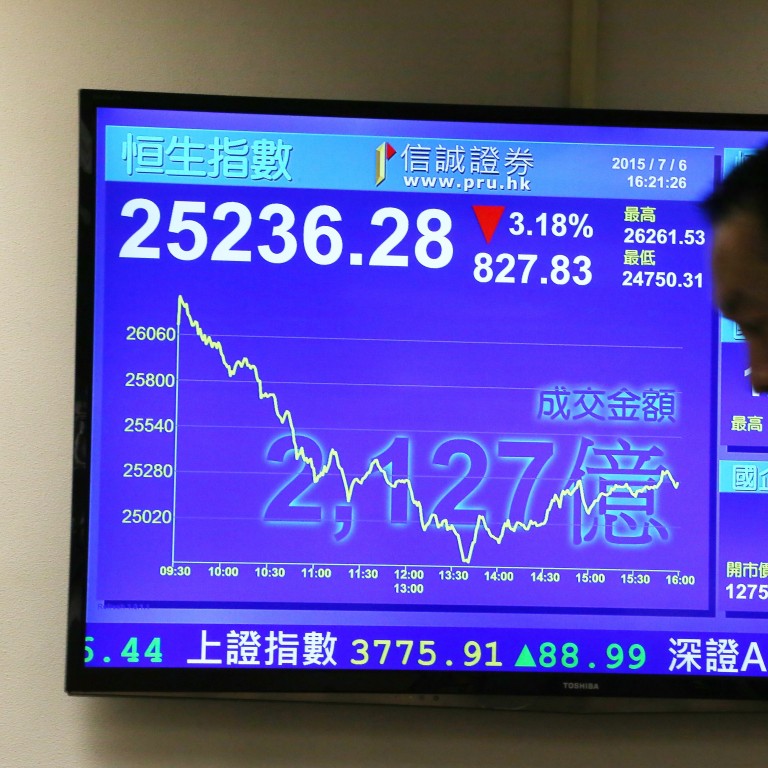
Hong Kong stock bulls keep market rally alive on IPO allure amid resurgence in Covid-19 cases, sanction threats
- Hong Kong may be battling a third wave of coronavirus outbreak with 19 new locally transmitted cases on Wednesday
- Trump advisers said to be mulling steps to weaken Hong Kong dollar peg, according to a news report
The Hang Seng Index rose 0.6 per cent to 26,129.18. The benchmark slipped 1.4 per cent on Tuesday, the most in three weeks, after powering into a bull market on Monday from its March 23’s low. Markets in Australia, Japan and South Korea weakened.
New economy stocks led gains in Hong Kong. Tencent rose 5.2 per cent to HK$543.50, while Meituan Dianping advanced 8 per cent to HK$199.80.
It is “very likely” that hot money flowing into IPOs could keep fuelling the rally in Hong Kong, said Castor Pang Wai-sun, head of research at Hong Kong-based brokerage Core Pacific-Yamaichi. While the benchmark index may consolidate recent gains, it could re-test January’s peak of 29,100 in the coming months, he said.
“The bull market this time was due to fund inflows from both southbound and foreign investors,” Pang said. “The huge amount of funds from stimulus relief measures have helped global markets surge” and shake off the impact of Covid-19 pandemic, he added.
Hong Kong hosted 64 new stock listings in the first half this year, allowing mostly mainland companies to raise HK$87.5 billion (US$11.3 billion) in capital from investors, according to a report published by accounting firm PwC. That’s an about 22.3 per cent increase in sum over the same period in 2019, according to data provider Refinitiv.
Three other IPOs – Qingdao Kutesmart Company, Nanjing Develop Advanced Manufacturing and Geovis Technology Company – debuted on mainland bourses, surging by 44 to 438 per cent on their first day of trading.
“While investors can expect a market correction, there remain reasons to be positive on the A-share market’s longer-term outlook,” said Nicholas Yeo, head of China equities at Aberdeen Standard Investments, which managed £486.5 billion (HK$4.7 trillion) worldwide at the end of 2019.
“As China transitions away from reliance on exports, its growth will be driven by domestic consumption and a rising middle class. That will create opportunities to invest in quality companies in consumer discretionary and consumer staples, health care and financial services.”
Hong Kong’s battered Hang Seng Index expected to pick up steam in second half of year
The Hong Kong dollar is back in the spotlight after Bloomberg News reported that some top advisers to President Donald Trump were mulling steps to undermine the city’s 37-year currency peg to the US dollar to punish China for implementing the controversial security law in the former British colony.
That may prompt authorities to tighten social distancing rules and hurt an economy already in its deepest recession on record.
Australia’s S&P/ASX 200 Index fell 1.54 per cent. Elsewhere in Asia, Japan’s Nikkei 225 slipped 0.8 per cent, while South Korea’s Kospi slid 0.2 per cent.

